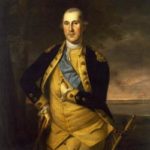In this simulation, elementary or middle school students convene as an Iroquois council in upstate New York, 1777. British agents are trying to convince Iroquois nations to take their side in the Revolutionary War.
Religion in Colonial America

This short video examines impact of Reformed Christianity on the minds and hearts of the Framers of the Constitution. Influenced by the writings of John Locke, Algernon Sydney, and John Calvin, Founders such as George Washington and John Adams believed that religion should play an informal, though important, role in American Society. Professor Jeffry Morrison examines Adams’ contention that colonial fears of British bishops helped to inflame revolutionary sentiments.
Women During the American Revolution

This short video illustrates the degree to which women actively participated in the American Revolution. In response to the Stamp Act, American colonists agreed to stop importing British goods and the colonial women led the boycotts of tea, fine cloth, and other consumer goods. Women began to think of themselves as “Daughters of Liberty.” Professor Rosemarie Zagarri explains how male political leaders came to acknowledge the political capacity and potential of women during this era.
Magna Carta: Relevance for the 21st Century
Learn about the relevance of Magna Carta today and the importance of being an engaged citizen in this video from the ABOTA Foundation and PBS Learning Media. Includes video, background essay and teaching guide!
Magna Carta: Justification for American Independence
Explore how the principles of Magna Carta inspired American colonists to declare their independence from England in this video from the ABOTA Foundation and PBS Learning Media. Includes video, background essay and teaching guide!
American Legal History: Colonial Era to 1800
Larry Kramer, former Dean of Stanford Law School and constitutional scholar, discusses American legal history, beginning with Marbury v. Madison.
George Washington and the Revolution

This short video examines the role played by George Washington in the defeat of the British during the American Revolution. From the moment he assumed command, Washington emphasized the importance of union to the war effort, in spite of challenges faced while commanding forces that were ill-fed, ill-supplied, and ill-served by the Confederation Congress. Professor W. B. Allen concludes that Washington’s leadership held both the military and the nation together during this tumultuous period.